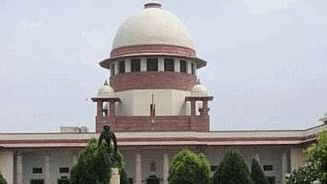
The Indian Supreme Court, in a number of judgments, has pointed out the clear distinction between a civil wrong in the form of breach of contract, non-payment of money or disregard to and violation of the contractual terms; and a criminal offence under Sections 420 and 406 of the IPC.
Credit: PTI File Photo
New Delhi: The Supreme Court has said the police do not have the power and authority to recover money or act as a civil court for recovery of money, as their job is to investigate the allegations which disclose a criminal act.
A bench of Justices Sanjiv Khanna and Dipankar Datta said the Supreme Court, in a number of judgments, has pointed out the clear distinction between a civil wrong in the form of breach of contract, non-payment of money or disregard to and violation of the contractual terms; and a criminal offence under Sections 420 and 406 of the IPC.
However, "Repeated judgments of this court are somehow overlooked, and are not being applied and enforced," the bench said.
The court quashed an FIR lodged by Hapur police in Uttar Pradesh and the charge sheet filed against Lalit Chaturvedi and others on a complaint for their alleged refusal to pay back over Rs 1.9 Cr to a timber merchant for supplying wood.
Going by the charges, the bench said, "We will assume that the assertions made in the complaint are correct but even then, a criminal offence under Section 420 read with Section 415 of the IPC is not established". Similarly the court noted ingredients of other offences were also not found in the case.
"It is for the complainant to file a civil suit. Initiation of the criminal process for oblique purposes, is bad in law and amounts to abuse of process of law," the bench said.
In the absence of the averments made in the complaint petition wherefrom the ingredients of the offence can be found out, the High Court should not hesitate to exercise its jurisdiction under Section 482 of the CrPC, it said.
The bench also emphasised the Section 482 of the CrPC saves the inherent power of the High Court, which serves a salutary purpose viz a person should not undergo harassment of litigation for a number of years, when no criminal offence is made out.
"It is one thing to say that a case has been made out for trial and criminal proceedings should not be quashed, but another thing to say that a person must undergo a criminal trial despite the fact that no offence has been made out in the complaint" the bench said.
